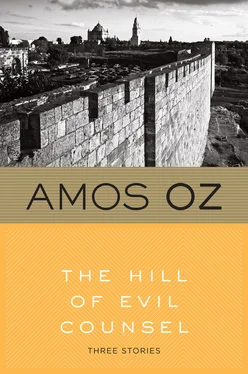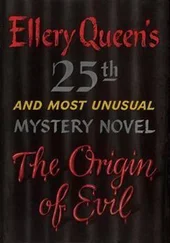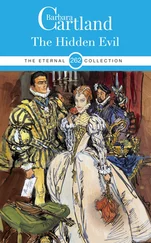During the night, the boy woke up again with an attack of asthma. Father came in barefoot and sang him a soothing song:
Night is reigning in the skies,
Time for you to close your eyes.
Lambs and kids have ceased from leaping,
All the animals are sleeping.
Every bird is in its nest,
All Jerusalem's at rest.
Toward dawn, the jackals howled in the wadi below Tel Arza. Mitya the lodger began to cry out in his sleep on the other side of the wall: "Leave him alone! He's still alive! Y-a ny-e zna-yu. " And he fell silent. Then cocks crew far away in the quarter of Sanhedriya and the Arab village of Shu'afat. At the first light, Father put on his khaki trousers, sandals, and a neatly pressed blue shirt with wide pockets, and set off for work. Mother went on sleeping until the women in the neighboring houses started beating their pillows and mattresses with all their might. Then she got up and in her silk dressing gown gave the boy a breakfast of a soft-boiled egg, Quaker Oats, and cocoa with the skin taken off; and she combed his curly hair.
Hillel said:
"I can do it by myself. Stop it."
An old glazier passed down the street, shouting, "Perfes-sional glazing! America! Anything repaired!" And the children called after him, "Loonie!"
A few days later, Father was surprised to receive a gold-embossed invitation for two to the May Ball at the High Commissioner's palace on the Hill of Evil Counsel. On the back of the invitation, the secretary had written in English that Lady Bromley wished to convey to Dr. Kipnis her gratitude and profound apology, and that Sir Alan himself had expressed his appreciation.
Father was not a real doctor. He was actually a vet.
2
He had been born and brought up in Silesia. Hans Walter Landauer the famous geographer was his mother's uncle. Father had studied at the Veterinary Institute in Leipzig, specializing in tropical and subtropical cattle diseases.
In 2932, he had emigrated to Palestine with the intention of establishing a cattle farm in the mountains. He was a polite young man, quiet, principled, and full of hopes. In his dreams he saw himself wandering with a stick and a haversack among the hills of Galilee, clearing a patch of forest, and building with his own hands a wooden house beside a stream, with a sloping roof, an attic, and a cellar. He meant to get together some herdsmen and a herd of cattle, roaming by day to new pastures and by night sitting surrounded by books in a room full of hunting trophies, composing a monograph or a great poem.
For three months he stayed in a guesthouse in the small town of Yesud-Hama'alah, and he spent whole days wandering alone from morning to night in eastern Galilee looking for water buffalo in the Huleh Swamps. His body grew lean and bronzed, and his blue eyes, behind his round spectacles, looked like lakes in a snowy northern land. He learned to love the desolation of the distant mountains and the smell of summer: scorched thistles, goat dung, wood ash, the dusty east wind.
In the Arab village of Halsa, he met a wandering Bavarian ornithologist, a lonely and fervently evangelical man who be-lieved that the return of the Jews to their land heralded the salvation of the world, and was collecting material for a great work on the birds of the Holy Land. Together they roamed to the Marj- Ayun Valley, into the Mountains of Naphtali and the Huleh Swamps. Occasionally, in their wanderings, they reached the remote sources of the Jordan. Here they would sit all day in the shade of the lush vegetation, reciting together from memory their favorite Schiller poems and calling every bird and beast by its proper name.
When Father began to worry what would happen when he came to the end of the money that his mother's uncle the famous geographer had given him, he decided to go to Jerusalem to look into certain practical possibilities. Accordingly, he took his leave of the wandering Bavarian ornithologist, gathered his few possessions, and appeared one fine autumn morning in the office of Dr. Arthur Ruppin at the Jewish Agency in Jerusalem.
Dr. Ruppin took at once to the quiet, bronzed boy who had come to him from Galilee. He also recalled that in his youth he had studied the tropical countries in Landauer's great Atlas. When Father began to describe the project of a cattle farm in the hills of Galilee, he took down some hasty notes. Father con-cluded with these words:
"It is a difficult plan to put into practice, but I believe it is not impossible."
Dr. Ruppin smiled sadly;
"Not impossible, but difficult to put into practice. Very difficult!"
And he proceeded to point out one or two awkward facts.
He persuaded Father to postpone the realization of his plan for the time being, and meanwhile to invest his money in the acquisition of a young orange grove near the settlement of Nes Tsiyona, and also to buy without delay a small house in the new suburb of Tel Arza, which was being built to the north of Jerusalem.
Father did not argue.
Within a few days, Dr. Ruppin had had Father appointed as a traveling government veterinary officer and had even invited him for coffee in his house in Rehavia.
For several years, Father would get up before sunrise and travel on sooty buses up to Bethlehem and Ramallah, down to Jericho, out to Lydda, to supervise the villagers' cattle on behalf of the government.
The orange grove near the settlement of Nes Tsiyona began to yield a modest income, which he deposited, along with part of his government salary, in the Anglo-Palestine Bank. He furnished his small house in Tel Arza with a bed, a desk, a wardrobe, and bookshelves. Above his desk he hung a large picture of his mother's uncle the famous geographer. Hans Walter Landauer looked down on Father with an expression of skepticism and mild surprise, particularly in the evenings.
As he traveled around the villages, Father collected rare thistles. He also gathered some fossils and pieces of ancient pottery. He arranged them all with great care. And he waited.
Meanwhile, silence cut him of? from his mother and sisters in Silesia.
As the years went by, Father learned to speak a little Arabic. He also learned loneliness. He put off composing his great poem. Every day he learned something new about the land and its inhabitants, and occasionally even about himself. He still saw in his dreams the cattle farm in Galilee, although the cellar and attic now seemed to him unnecessary, perhaps even childish. One evening, he even said aloud to his granduncle's pic toe:
"We'll see. All in good time. I'm just as determined as you are. You may laugh, but I don't care. Laugh as much as you like."
At night, by the light of his desk lamp, Father kept a journal in which he recorded his fears for his mother and sisters, the oppressiveness of the dry desert wind, certain peculiarities of some of his acquaintances, and the flavor of his travels among Godforsaken villages. He set down in carefully chosen words various professional lessons he had learned in the course of his work. He committed to writing some optimistic reflections about the progress of the Jewish community in various spheres. He even formulated, after several revisions, a few arguments for and against loneliness, and an embarrassed hope for a love that might come to him, too, one day. Then he carefully tore out the page and ripped it into tiny pieces. He also published, in the weekly The Young Worker, an article in favor of drinking goats' milk.
Sometimes, in the evening, he would go to Dr. Ruppin's home in Rehavia, where he was received with coffee and cream cakes. Or else he would visit his fellow townsman the elderly Professor Julius Wertheimer, who also lived in Rehavia, not far from Dr. Ruppin. Occasionally there was a distant sound of faint, persistent piano music, like the supplications of a desperate pride. Every summer the rocks on the hillside roasted, and every winter Jerusalem was ringed with fog. Refugees and pioneers continued to arrive from various foreign parts, filling the city with sadness and bewilderment. Father bought books from the refugees, some of them musty books with leather bindings and gold tooling, and from time to time he exchanged books with Dr. Ruppin or with the elderly Professor Julius Wertheimer, who was in the habit of greeting him with a hurried, embarrassed hug.
Читать дальше











